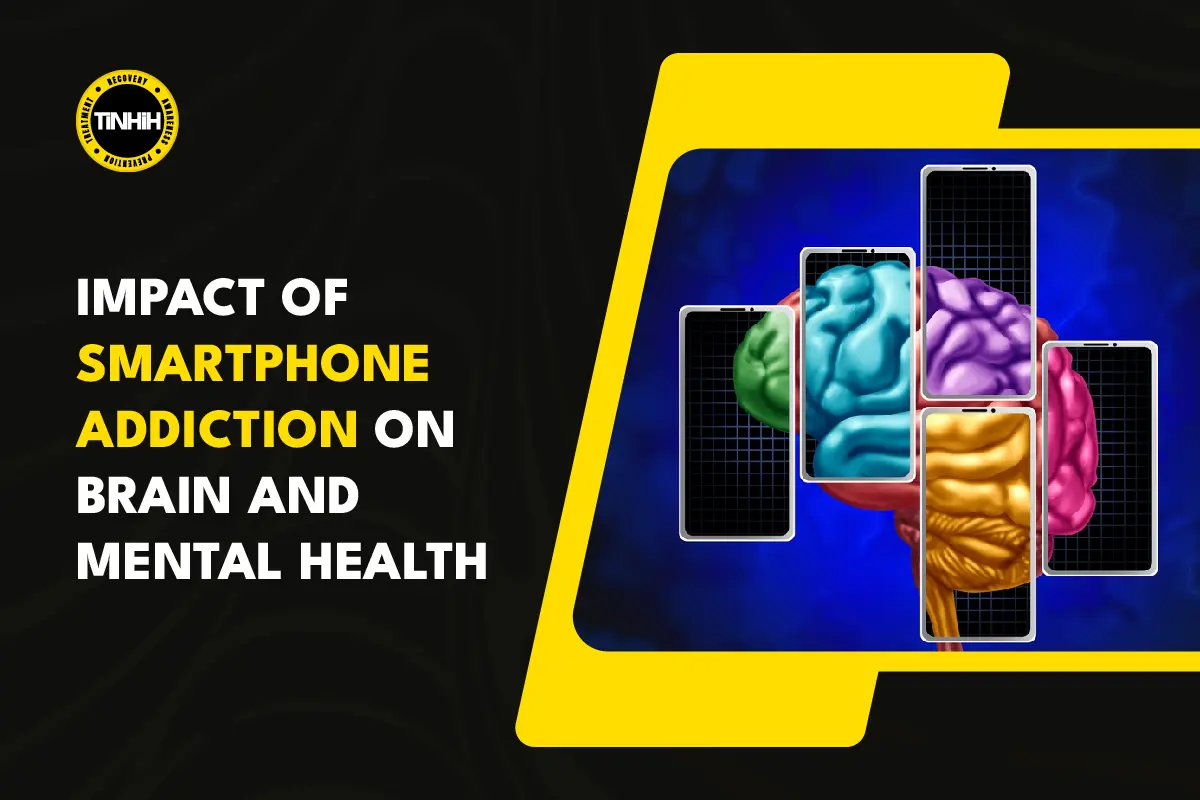
Why is Meth Addiction so Hard to Overcome: Unraveling the Complexities and Challenges

Methamphetamine addiction is a significant problem affecting individuals and communities worldwide. It’s a type of drug that has a high risk of abuse and addiction due to its powerful effects on the brain and body. In recent years, its prevalence has been on the rise, leading to devastating consequences for many individuals and their families.
The real challenge with methamphetamine addiction lies in the difficulty of overcoming it. Unlike some other substances, methamphetamine creates a particularly strong grip on those who use it, making it incredibly hard to break free from its hold. This makes it a complex and daunting problem to address, both for individuals struggling with addiction and for the professionals and communities trying to help them.
In this blog post, we’ll explore why meth addiction is so hard to overcome and discuss some of the factors that contribute to its stubborn grip on those affected by it.
Table of Contents
Definition of Methamphetamine or Meth?
Methamphetamine, often referred to as “meth” or “crystal meth,” is a powerful stimulant drug that affects the central nervous system. It comes in various forms, including powder and crystal, and can be smoked, snorted, injected, or swallowed. Methamphetamine stimulates the release of dopamine, a neurotransmitter associated with pleasure and reward, in the brain. This leads to feelings of euphoria, increased energy, and heightened alertness.
Mechanisms of Action in the Brain
Methamphetamine works by increasing the levels of dopamine in the brain, primarily by blocking its reuptake, which means that dopamine remains in the synaptic space longer, amplifying its effects. This flood of dopamine overwhelms the brain’s reward system, leading to intense feelings of pleasure and reinforcing the desire to use the drug again.
Additionally, methamphetamine also affects other neurotransmitters such as norepinephrine and serotonin, further contributing to its stimulating effects.
Short-term and Long-term Effects of Methamphetamine Use
Short-term effects of methamphetamine use include increased wakefulness and physical activity, decreased appetite, rapid heartbeat, elevated body temperature, and increased blood pressure. Users may also experience irritability, anxiety, paranoia, and hallucinations, commonly referred to as “meth psychosis.”
Long-term use of methamphetamine can lead to severe physical and mental health problems. These may include extreme weight loss, severe dental problems (“meth mouth”), skin sores, cognitive deficits, memory loss, mood disturbances, violent behavior, and psychosis. Chronic use can also lead to structural and functional changes in the brain, impairing decision-making, impulse control, and emotional regulation.
Factors Contributing to the Difficulty of Overcoming Meth Addiction
these factors that contribute to the difficulty of overcoming methamphetamine addiction is essential for developing comprehensive and tailored treatment strategies to support individuals on their journey to recovery.
Highly Addictive Nature of Methamphetamine
One of the primary reasons why meth addiction is so challenging to overcome is because methamphetamine is highly addictive. Its powerful effects on the brain’s reward system create intense cravings and compulsive drug-seeking behavior.
Even after using methamphetamine just a few times, individuals can quickly develop a tolerance, needing higher doses to achieve the same effects. This cycle of tolerance, dependence, and addiction can make it extremely difficult for individuals to stop using methamphetamine on their own.
Psychological and Physical Dependence
Methamphetamine addiction involves both psychological and physical dependence. Psychological dependence refers to the strong desire or craving to use methamphetamine due to the pleasurable effects it produces. Physical dependence occurs when the body adapts to the presence of methamphetamine and experiences withdrawal symptoms when drug use is stopped.
These withdrawal symptoms, which can include fatigue, depression, anxiety, intense cravings, and increased appetite, make it challenging for individuals to quit using methamphetamine without professional help.
Neurobiological Changes in the Brain
Repeated use of methamphetamine leads to significant changes in the brain’s structure and function, particularly in areas involved in reward, motivation, and decision-making. These neurobiological changes contribute to the development of addiction and make it harder for individuals to control their drug use.
Additionally, methamphetamine use can impair cognitive function, making it difficult for individuals to think clearly, make rational decisions, and resist the urge to use the drug.
Social and Environmental Factors
Social and environmental factors also play a significant role in the difficulty of overcoming meth addiction. Many individuals struggling with methamphetamine addiction face challenges such as poverty, unemployment, homelessness, trauma, and exposure to violence. These factors can contribute to stress, isolation, and lack of access to resources and support networks, making it harder for individuals to seek help and maintain recovery.
Co-Occurring Mental Health Disorders
Methamphetamine addiction often co-occurs with other mental health disorders, such as depression, anxiety, post-traumatic stress disorder (PTSD), and attention-deficit/hyperactivity disorder (ADHD). These underlying mental health issues can exacerbate the challenges of overcoming addiction and may require integrated treatment approaches to address both the addiction and the co-occurring disorders effectively.
Challenges Faced During Recovery
These challenges during the recovery process requires resilience, determination, and ongoing support from healthcare providers, peers, family, and community resources. By addressing these challenges proactively and providing individuals with the support and resources they need, we can help facilitate successful recovery journeys for those affected by methamphetamine addiction.
Withdrawal Symptoms and Cravings
One of the toughest hurdles individuals face during recovery from methamphetamine addiction is dealing with withdrawal symptoms and cravings. When someone stops using methamphetamine after prolonged use, their body and brain need time to readjust to functioning without the drug.
This adjustment period can be accompanied by a range of uncomfortable physical and psychological symptoms, such as fatigue, depression, anxiety, irritability, intense cravings, and difficulty sleeping. These withdrawal symptoms can be so overwhelming that they often drive individuals back to using methamphetamine to alleviate their discomfort.
High Rates of Relapse
Relapse, or the return to drug use after a period of abstinence, is a common challenge in recovery from methamphetamine addiction. The intense cravings and the rewiring of the brain’s reward system caused by methamphetamine use make it difficult for individuals to resist the temptation to use the drug again, especially when faced with triggers or stressors in their environment.
Relapse does not mean failure; it is a common part of the recovery process. However, it underscores the need for ongoing support and relapse prevention strategies to help individuals stay on track with their recovery goals.
Stigma and Societal Barriers
Stigma surrounding addiction and mental health issues can pose significant challenges for individuals seeking recovery from methamphetamine addiction. Society’s negative attitudes and stereotypes about addiction can lead to feelings of shame, guilt, and self-blame, which may discourage individuals from seeking help or disclosing their struggles to others.
Moreover, stigma can also result in discrimination in various areas of life, including employment, housing, and healthcare, further hindering individuals’ access to support and resources for recovery.
Treatment and Resources
Access to comprehensive and effective treatment for methamphetamine addiction can be limited for many individuals, particularly those from marginalized communities or rural areas. Barriers to treatment may include financial constraints, lack of insurance coverage, long wait times for services, and limited availability of evidence-based treatment options.
Additionally, some individuals may face logistical challenges, such as transportation or childcare, that prevent them from accessing treatment programs. Addressing these barriers and increasing access to quality treatment and support services is crucial for improving outcomes for individuals struggling with methamphetamine addiction.
Strategies for Overcoming Meth Addiction
Comprehensive Treatment Approaches
Effective treatment for methamphetamine addiction often involves a comprehensive approach that addresses the physical, psychological, and social aspects of addiction. This may include a combination of medical detoxification, counseling, behavioral therapies, medication management, and ongoing support services. By addressing the multiple dimensions of addiction, comprehensive treatment approaches can help individuals build the skills and resilience needed to achieve and maintain recovery.
Behavioral Therapies and Counseling
Behavioral therapies, such as cognitive-behavioral therapy (CBT), contingency management, and motivational interviewing, are essential components of addiction treatment for methamphetamine addiction. These therapies help individuals identify and change maladaptive thoughts and behaviors associated with drug use, develop coping strategies for managing cravings and triggers, and build skills for relapse prevention. Counseling provides a supportive and non-judgmental space for individuals to explore underlying issues contributing to their addiction and develop healthier ways of coping with stress and emotions.
Medication-Assisted Treatment Options
Medication-assisted treatment (MAT) may be used as part of a comprehensive approach to help individuals manage withdrawal symptoms, reduce cravings, and prevent relapse. While there are currently no FDA-approved medications specifically for treating methamphetamine addiction, medications such as bupropion, modafinil, and naltrexone may be used off-label to address certain symptoms or co-occurring mental health disorders.
Additionally, research is ongoing to identify and develop medications specifically targeting methamphetamine addiction.
| To learn about the complete guide on Medication Assisted Treatment by Krista Hales (IOTRC DIRECTOR, Center for Behavioral Health – NV) visit Harm Reduction / Overdose Prevention Trainings. |
Peer Support and Community Resources
Peer support groups, such as Narcotics Anonymous (NA) or SMART Recovery, can provide valuable support and encouragement for individuals in recovery from methamphetamine addiction.
These groups offer opportunities for individuals to connect with others who have similar experiences, share insights and strategies for maintaining sobriety, and receive support and encouragement from peers who understand the challenges of addiction firsthand.
Additionally, community resources such as sober living homes, vocational training programs, and support services for housing, employment, and healthcare can help individuals build a strong foundation for recovery and reintegrate into society.
Holistic Approaches to Healing
Holistic approaches to healing focus on addressing the whole person—mind, body, and spirit in addiction treatment. These approaches may include complementary therapies such as yoga, mindfulness meditation, art therapy, acupuncture, and nutrition counseling, which can help individuals reduce stress, improve emotional well-being, and enhance overall health and wellness.
By incorporating holistic practices into addiction treatment, individuals can develop a deeper understanding of themselves, cultivate self-awareness and self-compassion, and strengthen their recovery journey.
Conclusion
Overcoming methamphetamine addiction is a challenging but achievable goal with the right support, resources, and strategies in place.
By embracing comprehensive treatment approaches, including behavioral therapies, medication-assisted treatment options, peer support, and holistic healing practices, individuals can build the skills, resilience, and support networks needed to overcome addiction and reclaim their lives.
Through ongoing commitment, perseverance, and community support, recovery from methamphetamine addiction is possible, and every step forward is a triumph worth celebrating.





